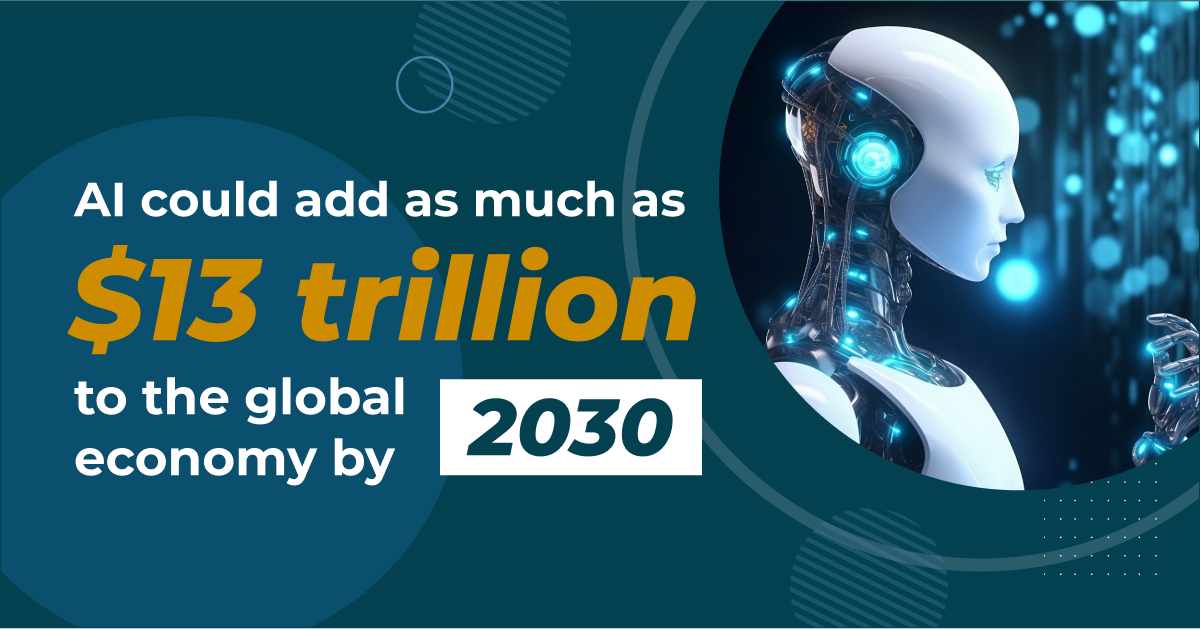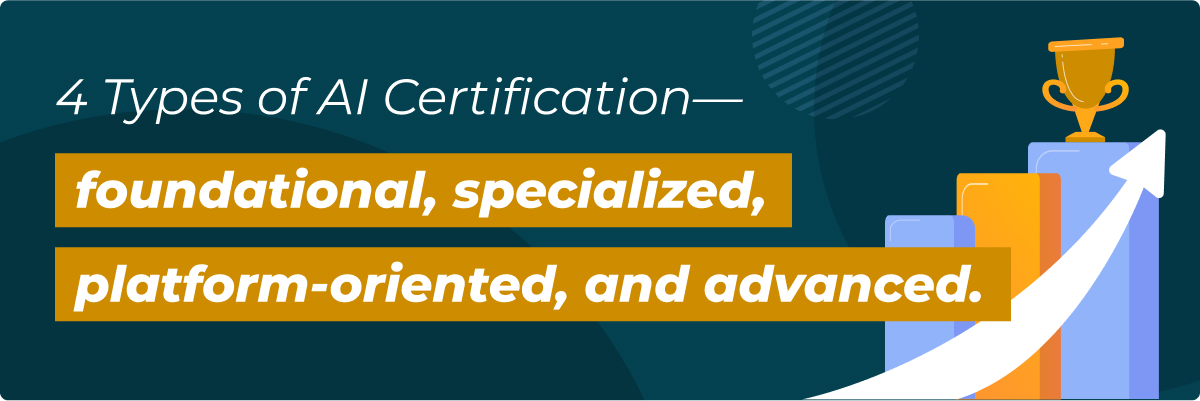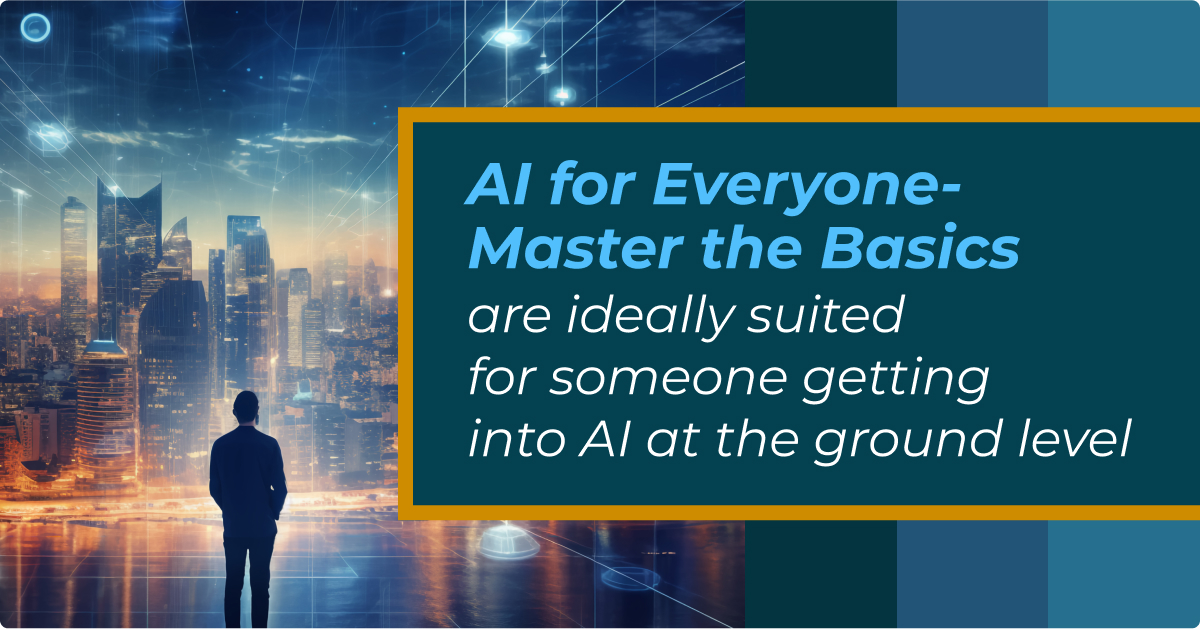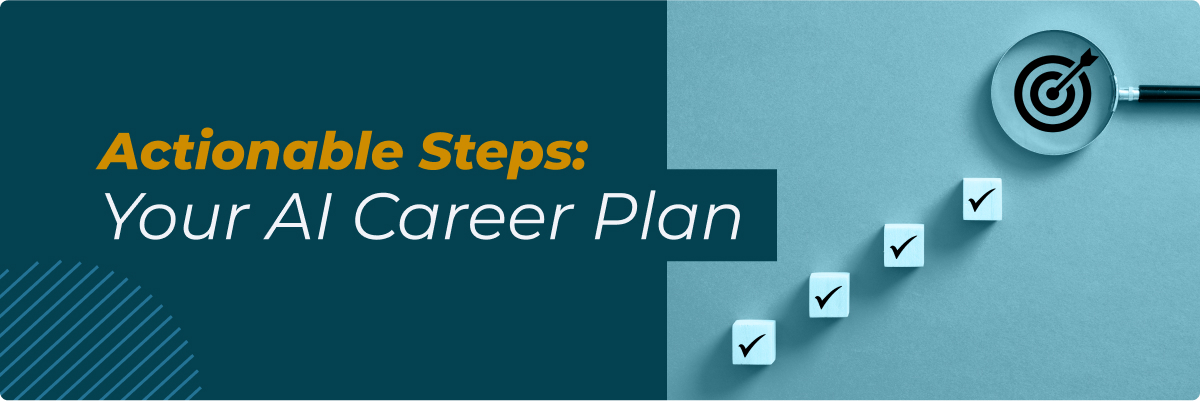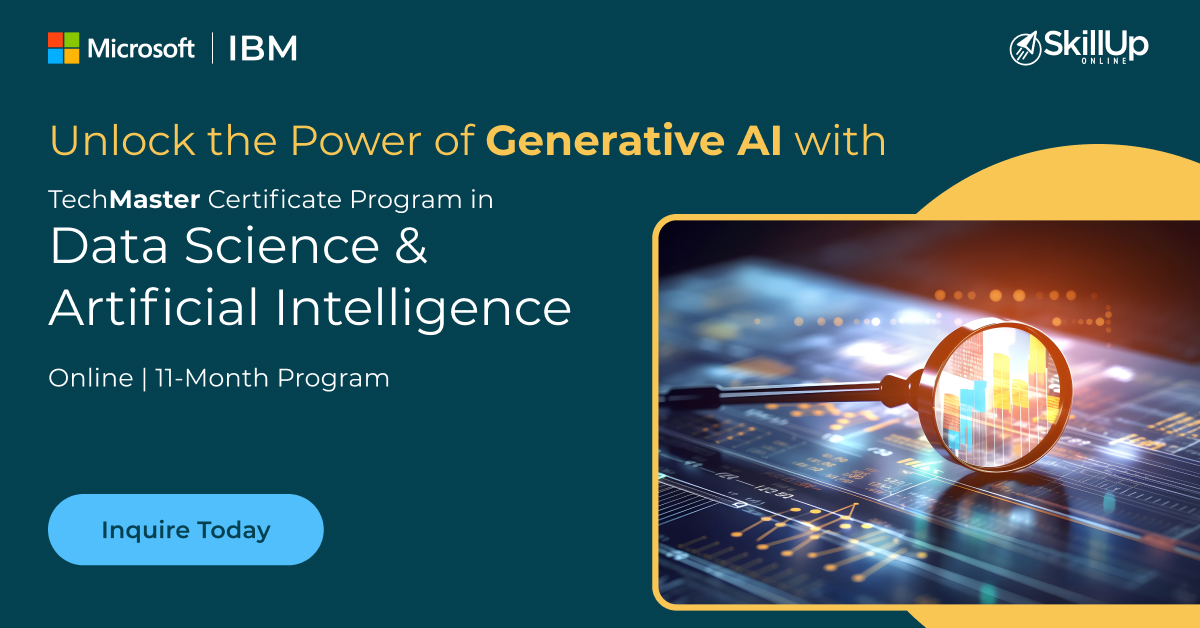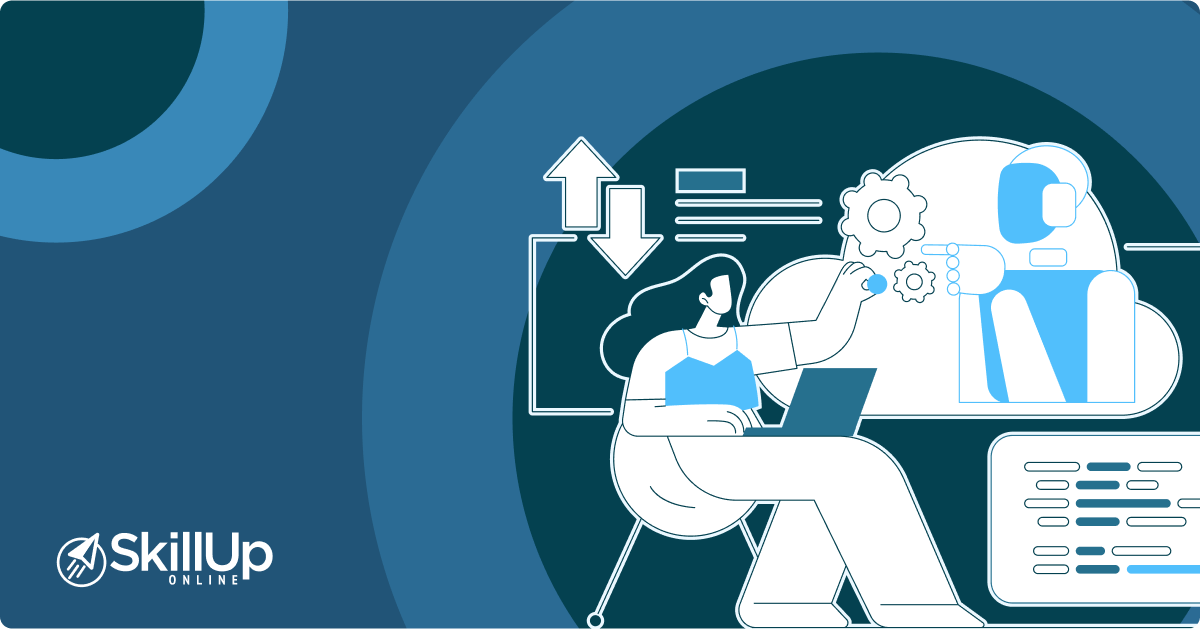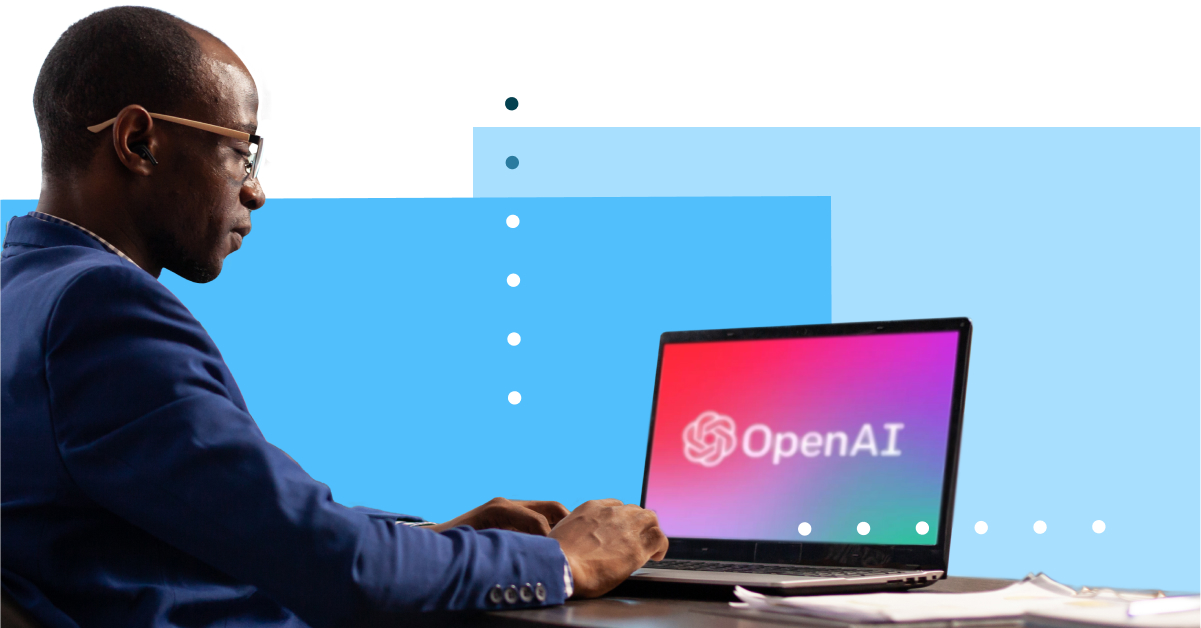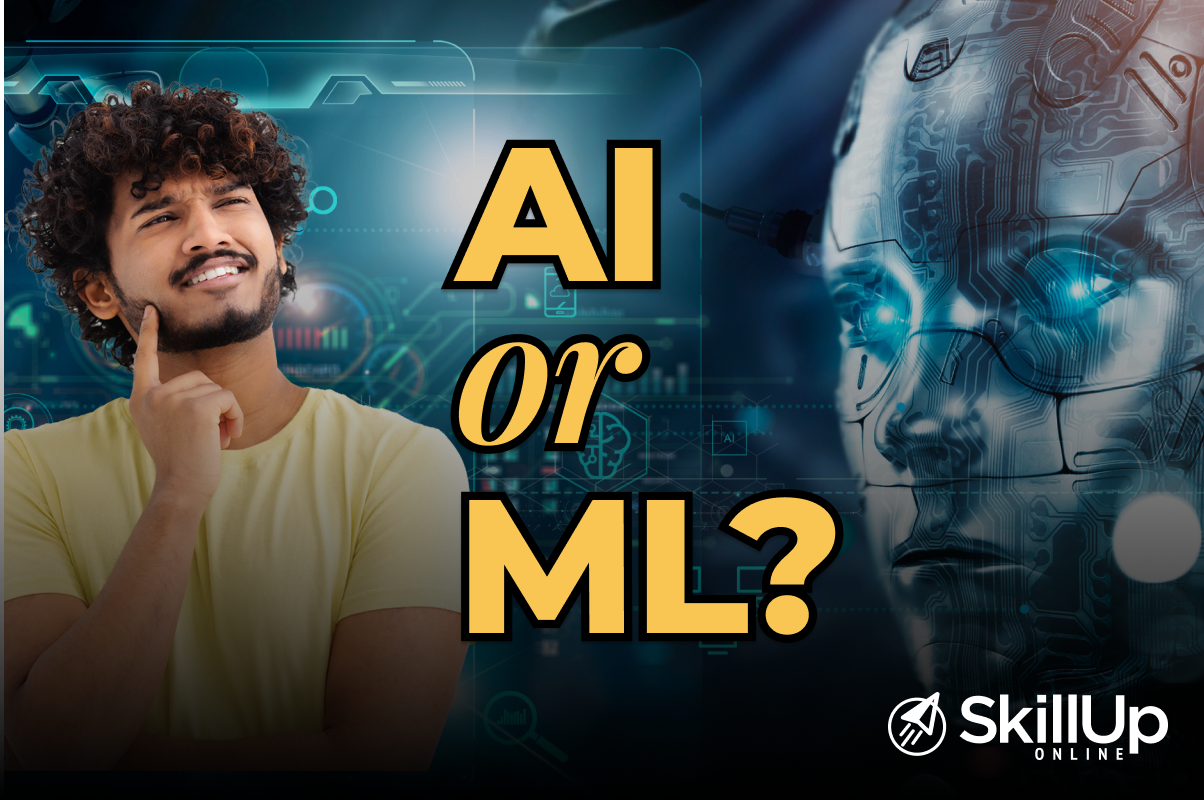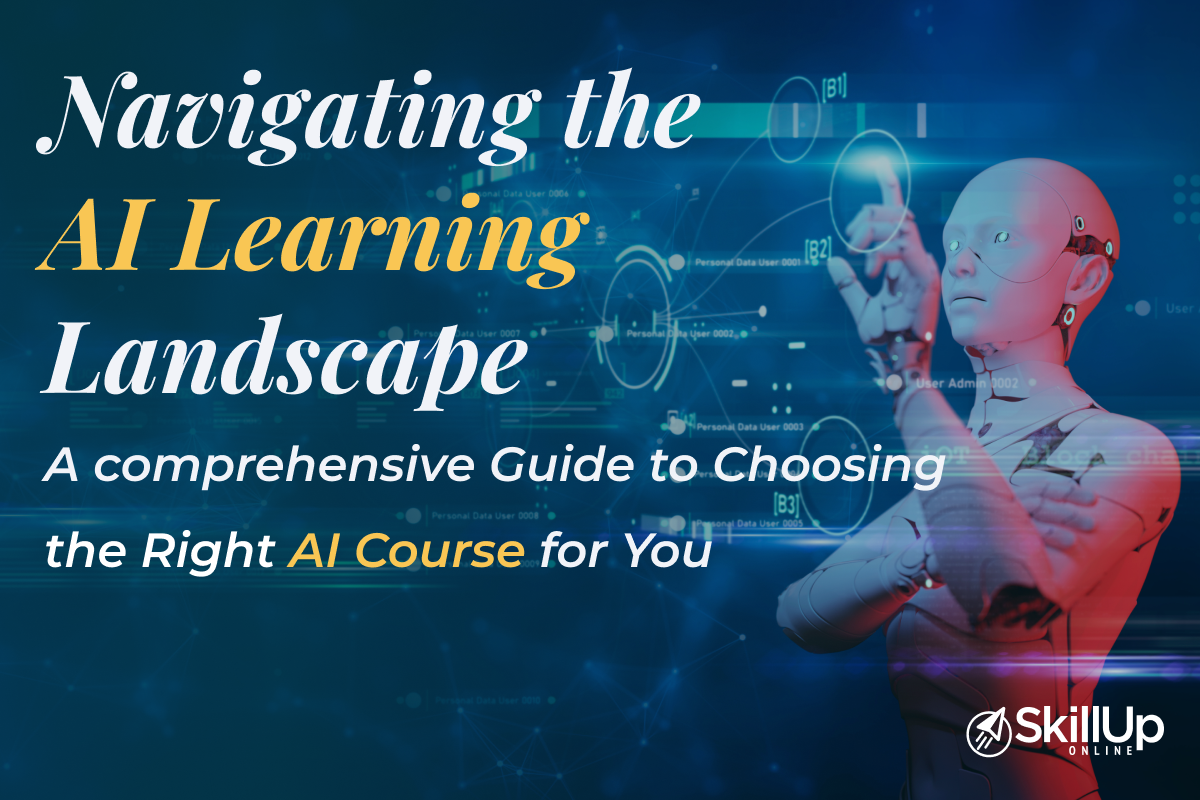An often-asked question by many learners who are actively thinking of pursuing a career in artificial intelligence (AI) is whether obtaining AI certifications will help their AI career. The quick and simple answer is yes. Certifications ensure you have the knowledge and skills employers are looking for, and they provide validation on your resume. However, there is more to it than that… so let’s investigate a little further.
Setting the Stage: The Dilemma of Choice
Artificial intelligence is no longer a sci-fi fantasy; it’s an integral part of the modern U.S. job market, affecting all industry sectors.
According to a recent McKinsey report, AI could add as much as $13 trillion to the global economy by 2030. And the magnitude of this impact underscores why AI is more than just a trend—it’s a transformative force.
In an environment teeming with opportunities, therefore, the true dilemma lies in making the right choice for your career. Do you dive deep into machine learning, focus on natural language processing, or perhaps explore AI ethics? It’s an important decision that could pivot your career trajectory.
This guide will explore the key aspects of AI certification tailored for learners like you. We’ll delve into the types of certifications available, the U.S. job market’s demands, and the financial and ethical considerations involved. By the end, you’ll be equipped with the actionable insights you need to make an informed decision about your AI journey.
AI Certification: The Basics
What is AI Certification?
AI certification formally recognizes your skills and knowledge in artificial intelligence. Think of it as a stamp of approval that tells employers you’ve got the required knowledge and skills to contribute meaningfully in AI roles. In the U.S., these certifications often align with industry standards, and therefore also highlight that your learning is current and applicable.
Types of AI Certification: A U.S. Perspective
While there is a myriad of AI certifications, they can generally be categorized into four types: foundational, specialized, platform-oriented, and advanced.
• Foundational Certifications
These are designed for those new to the field. They cover the basics of AI and may include topics like algorithms, data structures, and an introduction to machine learning and neural networks. They’re an excellent starting point for professionals looking to grasp the fundamentals.
• Specialized Certifications
These go a step further, diving into specific areas of AI. Whether it’s machine learning, natural language processing, or robotics, these certifications aim to build your expertise in a particular sub-domain. For example, you could earn a certification solely focused on the ethical considerations of AI or one specialized in data analytics.
• Advanced Certifications
For professionals with significant experience, advanced certifications offer a way to deepen your knowledge and specialize even further. These could involve high-level programming, complex neural network design, or mastering cutting-edge AI technologies like reinforcement learning.
• Platform Certifications
These certifications are those that are given by specific platforms such as Google, IBM and Microsoft. Obtaining these certifications not only establish you as an AI expert but also showcase your proficiency in specific platforms.
As an aside, it’s worth also noting that different specialised and advanced certifications may also be industry-specific, such as AI in healthcare or AI in finance. They are tailored to meet those sectors’ unique challenges and regulatory frameworks.
Recognized Entities Offering AI Certification
In the U.S., a range of institutions offer AI certifications. These include top-tier universities like Stanford and MIT, tech giants like Google and IBM, and Online Edtech platforms such as SkillUp Online. Industry bodies like the Artificial Intelligence Board of America (AIBA) also provide widely recognized certifications backed by rigorous exams and practical assessments.
Why Consider AI Certification?
Skill Enhancement: The Job Market’s Demands
The tech landscape continually evolves, and AI is one of its most significant game-changers. According to a LinkedIn report, AI specialist roles have seen a 74% annual growth. As the U.S. economy increasingly embraces digital transformation, the demand for proficient AI experts is higher than ever. Certification ensures you’re not just keeping up; you’re staying ahead.
Earning Potential: Salary Insights
It’s not just about adding another qualification to your resume; it’s about boosting your earning potential. Data from Payscale indicates that an AI specialist in the U.S. can earn an annual salary between $81,000 and $150,000. With a certification, you’re better positioned to command the higher end of this scale, and this shows a tangible ROI for your educational investment.
Networking Opportunities: Breaking into AI Circles
One of the less-talked-about but equally valuable benefits of AI certification is the networking opportunity it provides. Whether it’s connecting with industry leaders during the certification program or becoming a part of AI-focused professional organizations, these networks can be invaluable in setting your career trajectory.
Is AI a Good Fit for You? Self-Assessment
Your Current Skill Set: How It Aligns with AI
You don’t have to start from scratch to jump into AI. Many existing skills are highly transferable. For example, if you’re proficient in programming languages like Python or have a strong foundation in statistics, you’re already a step ahead. Even soft skills like problem-solving and critical thinking are invaluable in AI. Identifying these crossover skills can make your journey into AI less daunting and more focused.
Are You Curious Enough? The Inquisitive Mindset
AI is a field that thrives on curiosity. New algorithms, techniques, and applications are continually emerging. Having an inquisitive mindset helps you keep up with these changes and drives you to explore and innovate. If you love asking “Why?” and “How?”, you’re already well-suited for a rewarding career in AI.
Balancing AI Learning with Your Current Lifestyle
Committing to an AI certification isn’t just about academic rigor; it’s also about fitting this commitment into your life. Be it work, family, or other responsibilities, striking a balance is crucial. Online courses, weekend boot camps, and part-time study options are available to make this easier, allowing you to customize your learning journey to fit your lifestyle.
Financial Aspects: U.S. Costs and ROI
Certification Costs: Price Points
The cost of AI certification can vary widely depending on the program and institution. Generally, prices range from $300 for basic courses to $3,000 for more specialized or in-depth programs. Edtech Platforms such as SkillUp Online offer a range of AI programs and competitive prices, while universities like MIT and Stanford, of course, have other more traditional face-to-face options.
Scholarships and Financial Aid: U.S. Options
The good news is that there are numerous ways to offset these costs. Scholarships are available specifically for tech disciplines, including AI. Platforms like Fastweb can connect you to suitable scholarships, and many educational institutions offer financial aid or installment payment options.
ROI: What’s the Payback Time in the U.S.?
While the upfront costs can seem daunting, the ROI can be significant. With the earning potential discussed earlier, it’s feasible to recoup your investment within a year or two. Many professionals see a salary hike post-certification, providing a robust financial incentive to consider this educational route.
Getting Ready: Pre-certification Steps
Basic Requirements: Educational Standards
Before enrolling in an AI certification course, meeting some educational prerequisites is essential. Most programs expect you to have a basic understanding of programming languages, primarily Python, and some grounding in mathematics, specifically statistics. However, don’t be deterred if you’re not an expert; several courses offer introductory modules to bridge gaps.
For example, courses like Foundations in AI and Machine Learning and AI for Everyone- Master the Basics are ideally suited for someone getting into AI at the ground level
Learning Paths: Online vs. In-Person in the U.S.
The next decision is how you want to learn. Online training offers flexibility, which is essential if juggling other commitments. Platforms like SkillUp Online provide cutting-edge, personalized curriculums. On the other hand, in-person training offers a structured environment and more immediate, personalized feedback. The choice ultimately depends on your learning style and schedule.
Regulatory and Ethical Considerations
Navigating U.S. Data Privacy Laws
If you’re considering a career in AI in the U.S., understanding data privacy laws is essential. Regulations like the California Consumer Privacy Act (CCPA) and the Federal Trade Commission Act govern how data can be collected and used. Being well-versed in these laws is a compliance requirement and you have an ethical obligation to protect user privacy.
AI Ethics: Why It’s a Concern
Ethical considerations in AI are increasingly coming into focus in the U.S., covering areas from algorithmic fairness to job displacement due to automation. These ethical questions are not just theoretical; they have real-world implications. Being mindful of these issues and seeking solutions is part of being a responsible AI practitioner.
Preparing for Regulatory Changes
The regulatory landscape for AI in the U.S. is continuously evolving. Staying updated on policy changes and discussing future regulations can make you a more informed and adaptable professional. Organizations like the AI Now Institute provide valuable resources for staying abreast of these changes.
Common Roadblocks and How to Overcome Them
Time Constraints: Balancing Work and Study
One of the most common challenges in pursuing AI certification is managing time, especially if you’re already working. However, the U.S. has a robust ecosystem of part-time and online courses that offer flexibility. Time management apps and establishing a study routine can also make a difference.
Financial Roadblocks: Specific Solutions
Though we’ve already discussed financial aid and scholarships, some may still find the costs prohibitive. In the U.S., employer-sponsored educational programs are a viable option. Many companies offer tuition reimbursement as part of their benefits package, making it easier for you to finance your certification.
Navigating Cultural and Academic Barriers
Whether you’re a career switcher, a graduate, or a seasoned professional, you may face cultural or academic barriers. Being aware of the U.S. literary culture, participating in networking events, and leveraging online communities can ease the transition.
Actionable Steps: Your AI Career Plan
Now that you are equipped with an understanding of why AI certifications matter, it’s important to set the stage for creating a time-bound approach to realizing your AI career dreams. Some of the concrete steps you can take are:
• Create a Study Plan: Academic Calendar
Once you’ve decided to get certified, draft a study plan. Align it with the U.S. academic calendar to take advantage of seasonal breaks and holidays for intensive study sessions. Various apps can help you manage your time effectively.
• Participate in Networking and Community Meetups: AI Groups
Your professional network can open doors. In the U.S., consider joining AI-specific forums, LinkedIn groups, and attending virtual or in-person events to connect with like-minded professionals and potential employers.
• Job Application Strategies
A well-crafted resume and cover letter can set you apart. Tailor your application to highlight your newly acquired AI skills and certifications. Practice for interviews by staying updated on AI trends and breakthroughs in the U.S. market.
Remember, you’re not just building a skill set but a future. Arming yourself with the right set of AI certifications can open doors to a promising career in AI. Whether you’re a career starter or an experienced professional, AI certification offers a pathway to elevate your standing in the job market. And with these actionable steps, you will have a strategic plan that caters to the U.S. job market.
If you would like to know more about how you can build the necessary skills and get started, contact our Learner Support Team at [email protected]. They will be more than happy to guide you on your next steps.
FAQs
Q: Do I need specific work authorization to work in AI in the U.S.?
A: Generally, you’ll need the same work authorization as for any other job. Some specialized roles may require a security clearance, especially in sectors like defence or government.
Q: Can I work remotely in AI jobs based in the U.S.?
A: Absolutely! The pandemic has accelerated the acceptance of remote work, and many AI roles offer this flexibility. However, certain positions may require on-site presence for secure data handling or hardware-related tasks.
Q: Are there tax benefits for pursuing educational programs in AI in the U.S.?
A: The IRS provides tax deductions for educational expenses under certain conditions. Consult a tax advisor for personalized advice on this matter.
SkillUp Online
